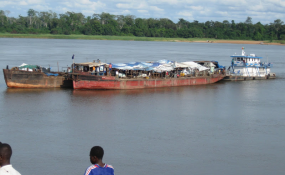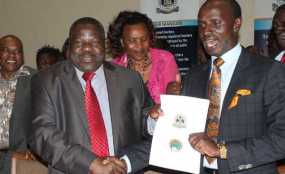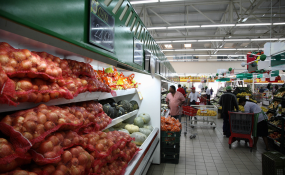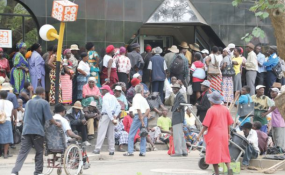The Nigerian Air Force (NAF), says it has destroyed another set of illegal oil barges in Rivers.
Group Capt. Ayodele Famuyiwa, NAF Director of Public Relations and Information, in a statement issued on Sunday in Abuja, said the barges were filled with stolen oil.
According to Famuyiwa two of the latest barges filled with stolen oil were set ablaze by NAF helicopters on armed patrol around Okoromabie in the South-East of Port Harcourt Refinery.
Famuyiwa explained that the third barge, surrounded by canoes carrying drums, was sited at Onne, while individuals around the barge and canoes fled.
He explained further that the barge and drums did not explode, indicating the possibility of being empty.
“The latest operations like the previous ones are clear pointers to the fact that it is no longer profitable to steal crude oil in Nigeria,” Famuyiwa said.
NAF, had in the past one month, destroyed a number of illegal refineries and oil barges in Rivers.










